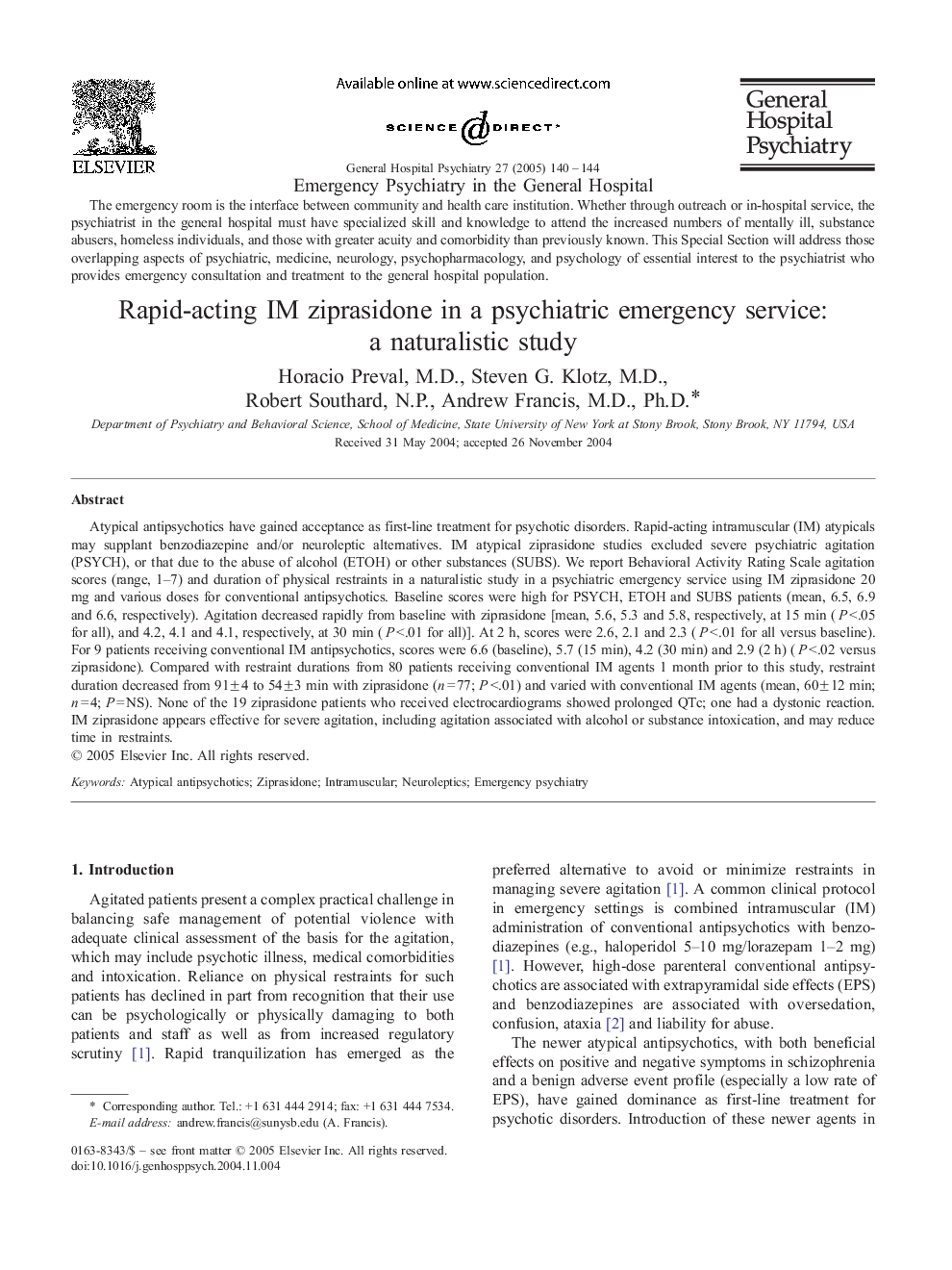| Article ID | Journal | Published Year | Pages | File Type |
|---|---|---|---|---|
| 9233613 | General Hospital Psychiatry | 2005 | 5 Pages |
Abstract
Atypical antipsychotics have gained acceptance as first-line treatment for psychotic disorders. Rapid-acting intramuscular (IM) atypicals may supplant benzodiazepine and/or neuroleptic alternatives. IM atypical ziprasidone studies excluded severe psychiatric agitation (PSYCH), or that due to the abuse of alcohol (ETOH) or other substances (SUBS). We report Behavioral Activity Rating Scale agitation scores (range, 1-7) and duration of physical restraints in a naturalistic study in a psychiatric emergency service using IM ziprasidone 20 mg and various doses for conventional antipsychotics. Baseline scores were high for PSYCH, ETOH and SUBS patients (mean, 6.5, 6.9 and 6.6, respectively). Agitation decreased rapidly from baseline with ziprasidone [mean, 5.6, 5.3 and 5.8, respectively, at 15 min (P<.05 for all), and 4.2, 4.1 and 4.1, respectively, at 30 min (P<.01 for all)]. At 2 h, scores were 2.6, 2.1 and 2.3 (P<.01 for all versus baseline). For 9 patients receiving conventional IM antipsychotics, scores were 6.6 (baseline), 5.7 (15 min), 4.2 (30 min) and 2.9 (2 h) (P<.02 versus ziprasidone). Compared with restraint durations from 80 patients receiving conventional IM agents 1 month prior to this study, restraint duration decreased from 91±4 to 54±3 min with ziprasidone (n=77; P<.01) and varied with conventional IM agents (mean, 60±12 min; n=4; P=NS). None of the 19 ziprasidone patients who received electrocardiograms showed prolonged QTc; one had a dystonic reaction. IM ziprasidone appears effective for severe agitation, including agitation associated with alcohol or substance intoxication, and may reduce time in restraints.
Related Topics
Health Sciences
Medicine and Dentistry
Emergency Medicine
Authors
Horacio M.D., Steven G. M.D., Robert N.P., Andrew M.D., Ph.D.,
